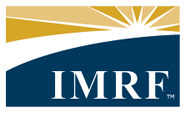Your IMRF pension gives you life-long income protection.
Qualifying for a Pension
Participation in ECO does not change vesting requirements. The earliest retirement age is:
- Age 55 with eight years of any combination of service credit
- Age 50 (SLEP Tier 1 members only) with 20 years of SLEP service credit or 20 years of SLEP and SLEP ECO service credit
You need eight years of Revised ECO Tier 1 service in the same elected position with the same county to qualify for the Revised ECO Tier 1 formula. If you do not earn eight years of ECO services in the same elected position with the same county, your
- Service will be treated as Regular or SLEP, as appropriate
- Additional ECO contributions will be refunded with interest when you retire
The rules governing reduction of pension for Tier 1 Regular Plan retirement prior to age 60 still apply to any portion of your pension calculated with Regular service credit. However, the reduction is not applicable if you are eligible for a SLEP Tier 1 pension or to any portion of a pension attributable to ECO service.
Pension Formula
A Tier 1 ECO pension is calculated as follows (credit is given for partial years after eight years in the same position with the same county):
- 3% of ECO monthly final rate of earnings for each of the first eight years of ECO service credit, plus
- 4% of ECO monthly final rate of earnings for each of the next four years of ECO service credit, plus
- 5% of ECO monthly final rate of earnings for each year of ECO service credit in excess of 12 years, to a maximum of 80% at 20 years of service.
However, the total pension at retirement cannot exceed 80% of your final rate of earnings.
Final Rate of Earnings (FRE)
Under the Tier 1 Revised ECO Plan, your FRE is the average of the highest consecutive 48 months of ECO service:
- In the last 10 years of service in a specific office with the same county or
- The number of years held in a specific office (minimum eight years) with the same county
The Tier 1 Revised ECO FRE does not include any lump sum payments for vacation, sick leave, overtime, personal leave, etc. The Revised ECO Tier 1 FRE does include stipends.
A separate FRE will be calculated for each elected county position you hold for eight or more years.
Alternative FRE Formula: Lifetime FRE
If a member has higher earnings at the beginning of his or her career, an alternate FRE is used. The Lifetime FRE averages all of a member’s earnings reported by all of his or her IMRF employer(s) over the member’s entire IMRF career.
When you retire, IMRF will calculate your FRE using both methods and will use the FRE that provides you with the larger pension.
Service Credit
Service credit is your total time under IMRF, stated in years and fractions. Service is credited monthly while you are working or receiving IMRF disability benefits.
Reaching Maximum ECO Pension Benefit
A Revised ECO Tier 1 reaches the maximum ECO retirement benefit after earning 20 years of ECO service credit. The 80% maximum Revised ECO Tier 1 pension can also be earned if you have a combination of both ECO Tier 1 service and Regular or SLEP service (which has not been converted to ECO).
If You Do Not Vest for ECO
You need eight years of Revised ECO Tier 1 service in the same elected position with the same county to qualify for the Revised ECO Tier 1 formula.
If you do not earn eight years of ECO service in the same elected position with the same county, your:
- Service will be treated as Regular or SLEP, as appropriate
- Additional ECO contributions will be refunded with interest when you retire
If You Vest for ECO and Have Other IMRF Service
If you retire with both ECO and Regular or SLEP service credit
- The ECO monthly FRE will be used with the ECO service credit
- The "customary" (Regular/SLEP) FRE will be used with the Regular and/or SLEP service credit
Annual Pension Increases
Under Revised ECO Tier 1, your pension is increased by 3% of the original amount on January 1 of each year after you retire. If your pension effective date is something other than January 1, your first year increase will be prorated based on the number of months you are retired that first year.
Supplemental Benefit Payment ("13th Payment")
After you have retired and have received pension payments for at least 12 months in a row, you will be eligible for a supplemental benefit payment every July. When you first retire, you must have retired on or before June 30 to receive a 13th Payment the next year. For example:
| If you retire… | You will receive your first 13th Payment in… |
|---|---|
| On or before June 30, 2017 | July of 2018 |
| After June 30, 2017 | July of 2019 |
You will receive this supplemental payment with your usual July pension payment. The amount varies every year, but it will always be less than your monthly pension amount.


